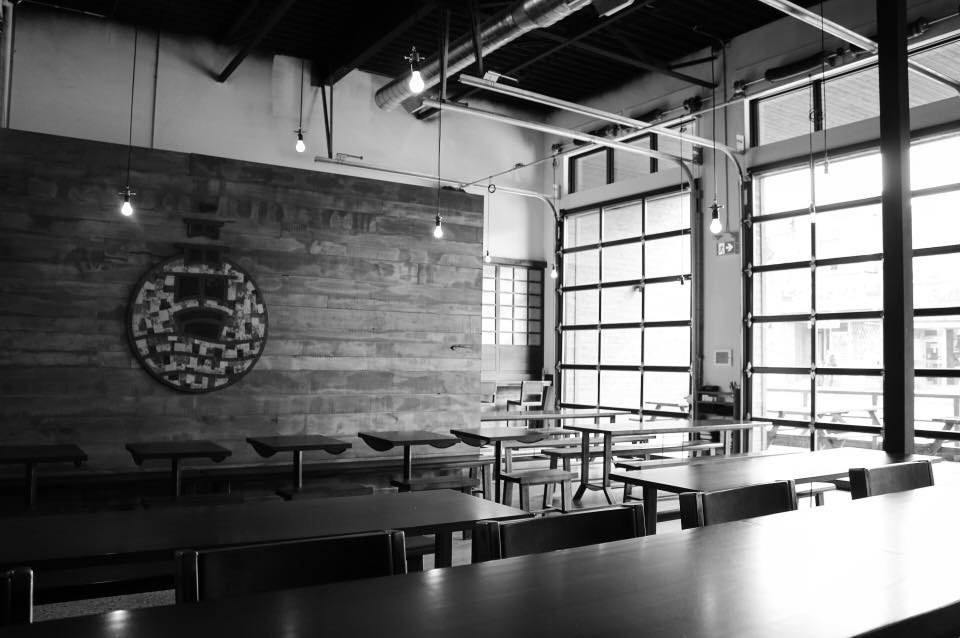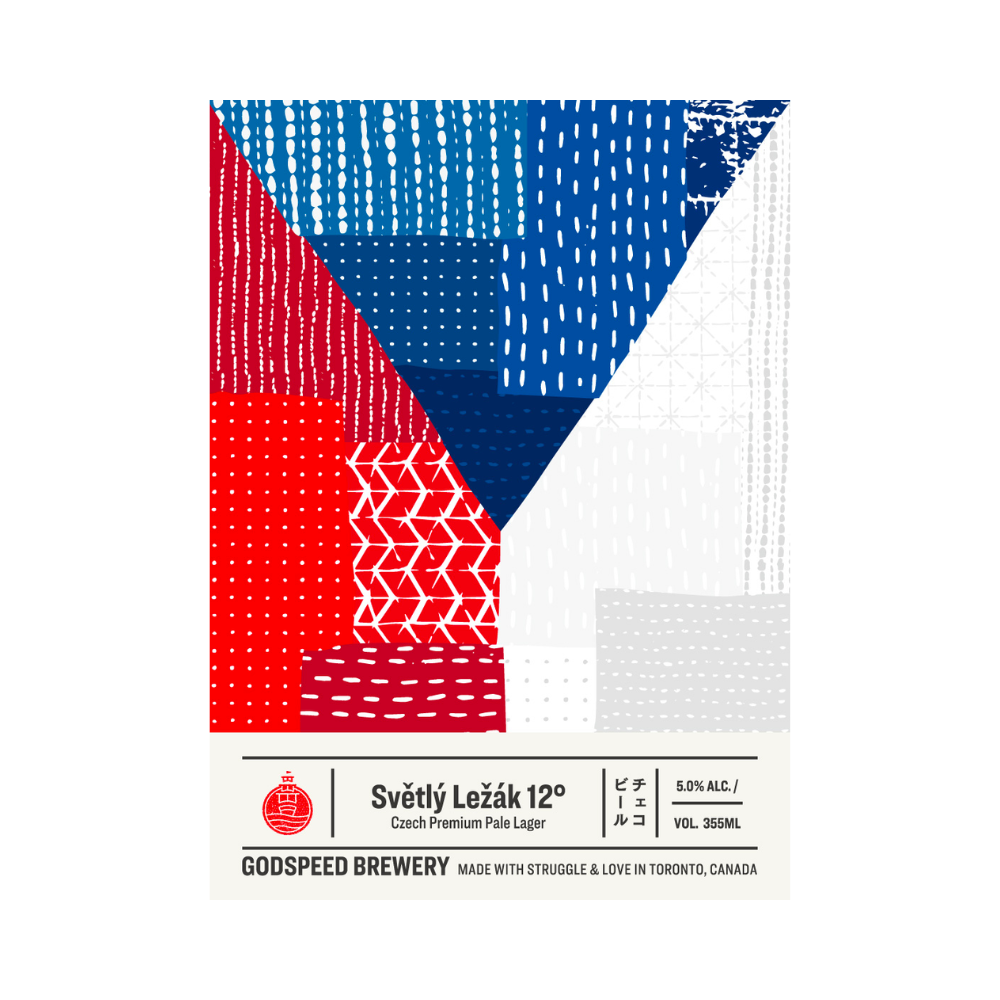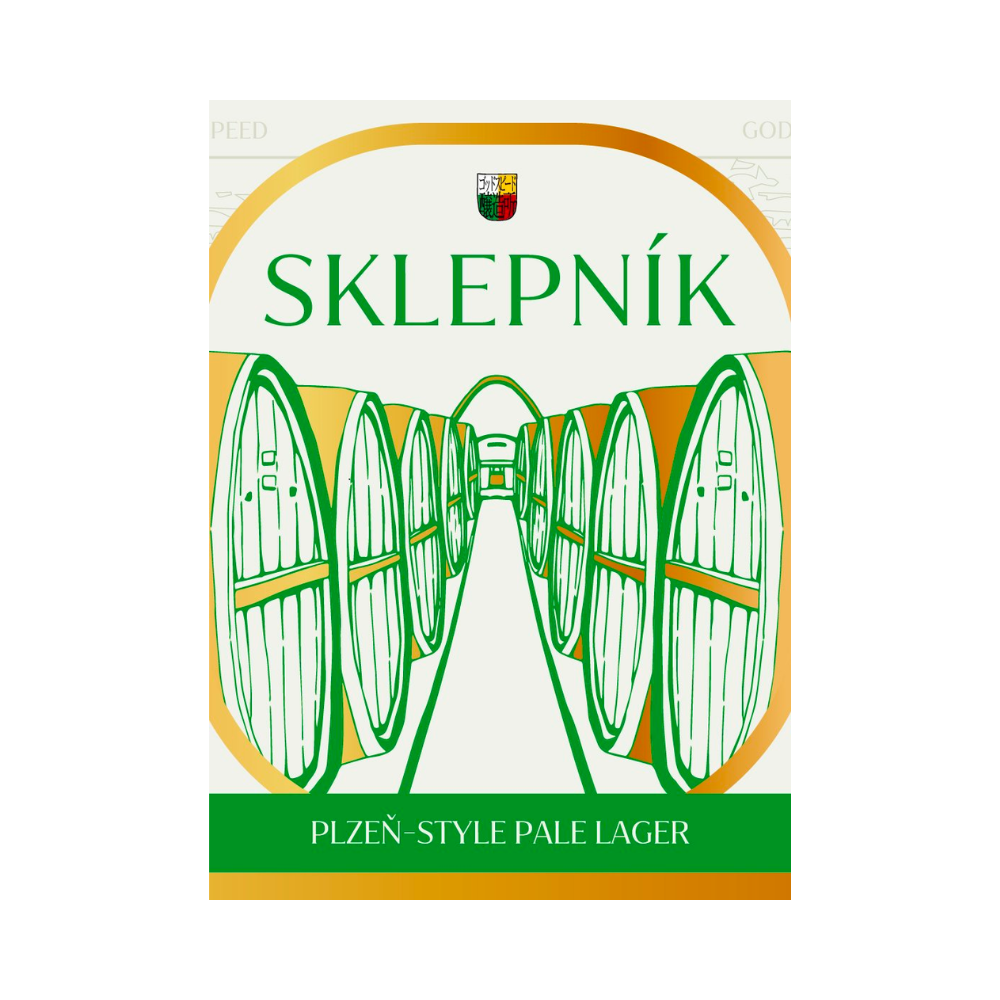Godspeed Brewery
Godspeed Brewery, Toronto, Ontario (godspeedbrewery.com)
When Luc Lafontaine chose to open his Godspeed Brewery in Toronto in July of 2017, expectations among the city’s beer cognoscenti were high, although as it turned out, for all the wrong reasons.
A homebrewer since his college days, Lafontaine joined Québec’s esteemed Dieu du Ciel Brewery in 2000, eventually working his way up to brewer at Dieu du Ciel’s original Montréal brewpub after Jean-François Gravel and Stéphane Ostiguy, the brewery’s founders, opened a separate production facility north of the city. Thing is, the bold and innovative ales and lagers Dieu du Ciel were best known for – what Lafontaine dubs the ‘crazy beers’ – were largely the product of Gravel’s fertile brewing imagination, whereas Lafontaine says he was responsible more for “the beers that balanced the menu, the low-ABV (alcohol by volume) stuff.”
And so, when Godspeed was conceived, an eager public was expecting bold IPAs and intense stouts, whereas Lafontaine delivered…a pale, German style lager of 4.8% alcohol.
“(Since)1992, Germany has been my favorite brewing country,” he says, “So in my mind, that’s what I was always going to do. I knew that it wasn’t maybe the best business decision, but I promised myself that I was going to build something that reflects who I am.”
The Godspeed Brewery (image courtesy of Godspeed)
Along with a pair of beers featuring Japanese ingredients, Yuzu, a session strength saison flavoured with its namesake Asian fruit, and Ochame, an IPA of moderate strength flavoured with green tea, Otsukaresama, as that original lager is still known, became the brewery’s principle flagships. Until, that is, Lafontaine was invited on an industry trip to the Czech Republic and, in his own words, came back “a changed brewer.”
Having visited Czech hop growers, maltsters, and, pivotally, Budweiser Budvar, the brewery responsible for the beers known in North America as Czechvar, Lafontaine was gripped by the need to pivot towards Czech style lagers. His greatest revelations came at the side of Josef Tolar, the retired brewmaster at Budvar, who escorted him through the brewery’s cellar, sampling beers at different stages of maturity, and convinced him of the importance of a brewing technique known as decoction mashing.
Since then, Lafontaine has gone to extremes to make singularly impressive examples of Czech beer styles at Godspeed, even going so far as commissioning the building of 40 hectolitre, pitch-lined wooden barrels in Pilsen and having them shipped to his Toronto brewery. The one beer that undergoes fermentation and conditioning in those barrels, Sklepnik, is a beer which, to this reviewer, conjures memories of when the world’s most famous Czech lager, Pilsner Urquell, used to be treated the very same way.
Otsukaresama (4.8%): The lager style here is German rather than the brewery’s more typical Czech approach, but then again, it’s creation also predates Lafontaine’s epiphany in Czechia. Bright, deep gold in colour, it has a firm, biscuity malt aroma backed by a floral perfume that almost brings to mind a subdued potpourri. The body delivers all the elements of the aroma, beginning with a dry digestive cookie maltiness mixed with notes of cereal, followed by a more floral and still drier midpalate that adds bitterness to the mix, ultimately culminating in a bone dry, quenchingly bitter finish. This is hoppier than what you’d typically find in Germany labelled ‘export’ style, but it in no way suffers for it.
88 ($3.75/341 ml can from the brewery)
Svĕtlý Ležák 12º (5%): Almost but not quite crystal clear, this lager fashioned in the classic Czech style has a floral but slightly sharp aroma, notes of fresh hay mixing with vaguely vegetal wildflower notes and just a hint of candied sugar. The start is a little sweet with a light caramel quality, which gives way to a round, off-dry mid-palate with light floral spiciness and mild to moderate earthy and leafy bitterness. A final flourish of hop on the finish provides a lingering bitterness alongside very faintly sweet malt. Simple and quaffable enough for mainstream beer drinkers, yet also sufficiently complex and nuanced that it will satisfy any craft enthusiast.
88 ($3.75/341 ml can from the brewery)
Sklepník (4.4%): Slightly hazy gold, this has a wonderfully perfumey aroma that is soft and prodigiously floral, with a very light and gentle malty sweetness to support it all. The start takes that light sweetness and runs with it, creating a palate entry that is pillowy soft with the retro-olfactory floral character of the aroma and a slight spun sugar sweetness. The flavour then progresses wonderfully in the mid-palate, adding a hop bitterness that whispers rather than screams its presence, and then continues to slowly grow through to the dry, moderately bitter finish. Quenching, complex, and thoroughly enjoyable; a beer to be savoured by the half-litre.
95 CRITIC’S CHOICE ($3.75/341 ml can from the brewery)
Tmavý Ležák 12º (4.7%): The Czech style of dark lager sits somewhere between the German dunkel and Schwarzbier in terms of dark and roasted malt character, but of course has a character all its own. The Godspeed version is a deep brown with a dry, gently roasty aroma holding notes of unsweetened cocoa, whitened coffee, and a whisper of licorice candy. The flavour starts with a lightly sweet and chocolaty entry, moves to a much more earthy mid-palate with soft notes of burnt grain, and finishes with a quenching dryness and a touch of coffee bean acidity. Lighter than one might expect, and a lovely counterpoint to the brewery’s pale Czech style lagers.
79 ($3.75/341 ml can from the brewery)
Yuzu (4.1%): Billed a ‘citrus saison,’ this is positioned at the lower strength, more thirst-quenching end of the saison style, with the Asian yuzu fruit adding flavour. Deep gold of hue, it veritably bursts from the glass with fragrant tangerine orange aromas underscored by white peppery spice. The palate entry speaks equally to the yuzu and the refreshing character of the beer, the latter a quality which emerges in force on the mid-palate with bright acidity alongside the citrus and spice, and only a glimmer of hop bitterness lurking below. What soft hop there is comes forward in the mildly bitter finish, concluding a profile that can only be described as ‘more-ish.’ Hardly a classic saison à la Saison Dupont, but a flavourful quencher I’d be happy to drink in the fields during harvest.
82 ($3.75/341 ml can from the brewery)
Ochame (6%): An IPA flavoured with green tea harvested from Lafontaine’s own tea field in Japan, this is hardly as unconventional as it may appear, with a cloudy, light to medium gold colour and an aroma that speak perhaps a bit more to dry-hopping than it does green tea – although the two aromas, equally fresh, verdant, and vibrant, blend so harmoniously that it can be difficult to tell where one ends and the other begins. On the palate, the beer behaves even more like a standard IPA, with lightly malty and fruity sweetness up front, a balanced bitterness with dryish stone fruit and fresh grassy notes on the mid-palate, and a very dry, leafy-bitter finish. A pleasant change from the intensely tropical fruity IPAs that proliferate these days.
85 ($3.75/341 ml can from the brewery)
Kemuri (4.8%): Any black ale from Lafontaine’s brewery is bound to have at least some smoked or peated malt as part of it, and this porter is no exception. Deep brown, almost black in colour, it has dark tan foam and a rich aroma that initially offers peated malt – think Islay single malt whiskies, but mellower – then settles down to a more earthy, rounded, lighter smokiness with notes of espresso and baked apple. It mellows further on the palate, with a much more subdued smoke, rising dark chocolate, and a coffee note that is more freshly brewed than espresso, with hints of raisin, black licorice, and just a touch of allspice aiding in its complexity. The finish is bone dry, slightly tannic, and just a touch of smoke and coffee bean-like acidity. A very pleasant beer that can be enjoyed by even the smoke-phobic.
83 ($3.75/341 ml can from the brewery)
Fuyu (10.2): As befits a brewer with as light a hand as has Lafontaine, this barleywine is reddish-amber rather than dark and intense, and boast a surprisingly light and fruity aroma, blending notes of fresh plum and dried cherries with hoppy citrus and a mildly earthy malt. It begins on the sweet side, as most barleywines do, with cherry the most prominent of the fruity flavours, then develops more red plum and orange flavours as the hop bitterness rises, eventually all but obscuring the stone fruit sweetness of the front. It is only in the finish that the beer’s strength finally shows itself, alongside a moderate bitterness, some peppery spice, and lingering burnt citrus oils. A satisfying winter seasonal that supports its strength well.
77 ($4.50/341 ml can from the brewery)









